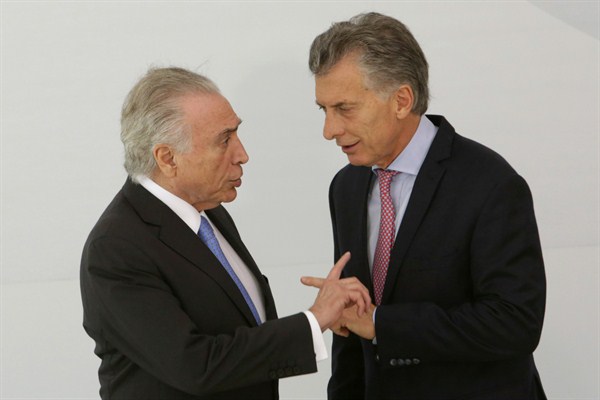Last week, negotiators from the European Union and Latin America’s Mercosur trading bloc, which includes Brazil, Argentina, Paraguay and Uruguay, concluded another round of unsuccessful talks in Brussels aimed at securing a free trade agreement. Negotiations between the two sides have been ongoing periodically for over two decades, and the most recent round again failed to provide a breakthrough, although talks will reconvene in Paraguay on Feb. 19. In an email interview, Sebastian Dullien, a senior policy fellow at the European Council on Foreign Relations and a professor of international economics at the applied sciences university HTW Berlin, discusses the recent push to finally seal a deal at a time of growing protectionism.
WPR: After 20 years of talks, what is driving the impetus to close an EU-Mercosur trade agreement now?
Sebastian Dullien: From the EU perspective, the European Commission desperately needs the conclusion of a trade agreement to show that it is still relevant in the realm of trade. The near-failure of the EU-Canada Comprehensive Economic and Trade Agreement, or CETA, and the de-facto failure of negotiations between the EU and the United States on the Transatlantic Trade and Investment Partnership, or TTIP, has led to fear within the European Commission that it is losing its ability to conclude trade agreements, despite the 2007 Lisbon Treaty actually expanding the commission’s power over trade and investment policies. Popular resistance in Europe to free trade agreements has grown, and the European Commission is afraid that foreign negotiators may become increasingly skeptical of negotiating with the EU after Canada’s experience. By concluding free trade agreements with Mercosur, and with Japan, the commission would show that it is still able to see new free trade agreements through.

